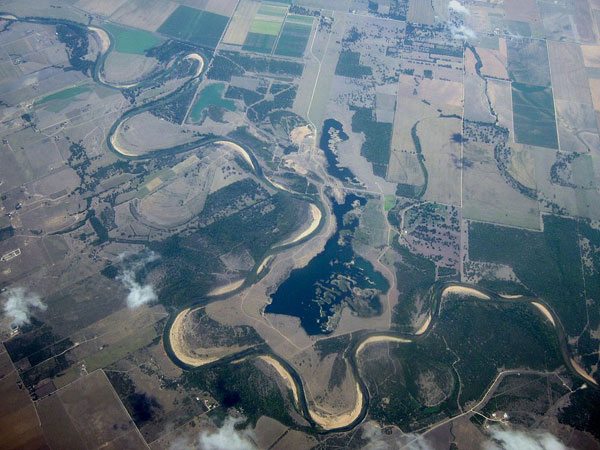
October 16, 2017; Las Vegas Sun
The Colorado River, mighty enough to have helped carve the Grand Canyon, starts in the Rocky Mountains in Colorado and flows for 1,450 miles through Utah, Arizona, Nevada, California, and Baja California on its way south to Mexico. Advocates have now given the river voice and have asked the federal district court to designate the river as a person with legal standing.
Environmental advocates are speaking up for the Colorado River to protect it as a natural resource, giving it actual rights to “exist, flourish, regenerate, be restored, and naturally evolve.” A nonprofit, the Community Environmental Legal Defense Fund (CELDF), is the advisor on a lawsuit against Colorado’s governor. The organization, founded in 1995, has a working budget of about $800,000 and aims through legal processes to build sustainable communities recognizing “the rights of people, communities and nature.” CELDF worked on the successful policies in Ecuador, Tamaqua Borough, and others.
“Climate change is presenting itself in full force,” CELDF executive director Thomas Linzey says. “People are beginning to understand that environmental law is falling short. Something new is needed.…This emerging system is about recognizing that ecosystems need to be protected in the plenary sense—not just to benefit humans.”
The river is represented by Colorado civil rights lawyer Jason Flores-Williams, known for a class-action lawsuit for the homeless in Denver. The river also has a “next friend,” an advocate for a plaintiff who cannot speak for themselves, in the activist organization Deep Green Resistance.
Linzey says, “Ten years ago, when we talked about rights of nature, [people] used to laugh. Now, it’s not a funny concept. There is a shift happening.” There’s also precedent, Linzey adds.
Sign up for our free newsletters
Subscribe to NPQ's newsletters to have our top stories delivered directly to your inbox.
By signing up, you agree to our privacy policy and terms of use, and to receive messages from NPQ and our partners.
Personhood for nonhuman entities already exists in the United States in the form of corporate personhood. At its most basic level, the designation is what allows a business (as opposed to its owners) to enter contracts or sue. On a larger scale, it’s what prohibits the government from taking goods produced by private businesses without just compensation, a right established for citizens by the Fifth Amendment. It was also the grounds for the landmark Citizens United case, which gave corporations, nonprofits, labor unions and other associations the right to make certain political expenditures. That right is protected for people through the freedom of speech clause within the First Amendment.
Will Falk, an attorney and the designated “next friend” from Deep Green Resistance, believes that ecological problems are overlooked in the fallout of the instituting of corporate personhood. “(These) need to be addressed for the natural world to have a chance,” he says.
Falk explains that if courts or lawmakers wanted to adopt significant environmental protections for the Colorado or adjust its water allocation to help revive a place currently struggling because it doesn’t receive enough water, a corporation could sue the government and cite lost profits as proof of suffering. Courts would consider the plaintiff’s argument as well as that of the government and affected third parties. But missing from that conversation would be what is best for the river.
“At the very least, if corporations have personhood, then the ecosystems that have sustained life deserve it,” Falk says. “It’s a way for American courts to respond to the urgency of the current environmental situation.” A commonality in the personhood for nature lawsuits is that any damages are returned to the environment for repair.
While the Colorado is the first river in the US to seek personhood rights, it’s not the first river in the world where advocates have made that claim. And advocates are starting to succeed. In India, the Ganga and Yamuna rivers were granted personhood rights earlier this year, and after fighting for 170 years, the Whanganui River (Te Awa Tupua) in New Zealand was also awarded the designation. Also, some regions have ordinances in place for nature as a whole. Tamaqua Borough in Pennsylvania’s coal region was the first US municipality to identify the environment’s legal rights in an effort to protect nature from coal sludge pollution. Since the 2006 ruling, Pittsburgh and almost 40 other municipalities have put similar decrees in place. Ecuador included rights for nature in their constitution when it was written in 2008, hoping to reverse damage done to the Amazon rainforest and its indigenous people by oil companies. In the nine years since, at least one Ecuadorian river has won a lawsuit.
The first hearing for the Colorado River is scheduled for November 14th. The river’s advocates will be present.—Marian Conway













